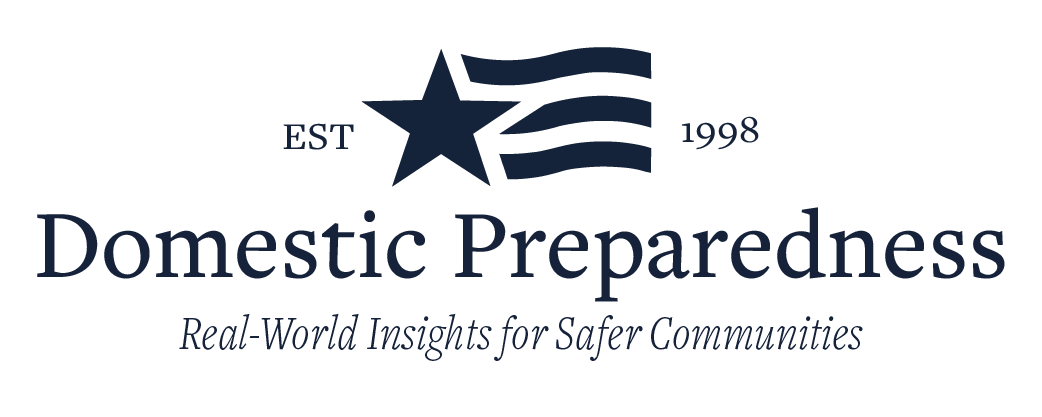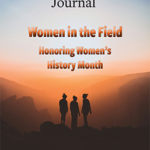In the middle of an Area Maritime Security Committee meeting, a facility security officer wonders out loud why it is so difficult to coordinate and disseminate information about terrorist activities, particularly in the maritime field, between all of the government agencies and private-sector entities that have a legitimate “need to know” such information. Another committee member suggests that the committee look into the possibility of establishing a Terrorism Early Warning (TEW) group.
As good ideas tend to do, this suggestion is changed into a motion, which is quickly passed. A subcommittee is then formed, and the facility security officer previously mentioned finds himself drafted onto the subcommittee. As he leaves the meeting, he realizes that he personally does not know enough about TEW groups, and wonders where he can obtain more, and more detailed, information.
Fortunately, there is a secure website that provides such information – and where homeland security professionals can gather information and share resources on a wide variety of various related topics. That website, created by the Department of Homeland Security (DHS), is formally titled “Lessons Learned Information Sharing” – but is usually, and less formally, called LLIS.gov (the LLIS part is pronounced ell-iss).
As of 7/5/05, the site – http://www.llis.gov – had over 14,500 members from a broad and rapidly growing spectrum of agencies, companies, and first-responder communities involved in all aspects of homeland defense and domestic preparedness. Emergency management, law enforcement, fire service, DHS, the nation’s armed services – specifically including the U.S. Coast Guard – the U.S. land/sea/air transportation communities, state governors’ offices, the financial community, Congressional offices and committees, and private-sector companies ranging from major corporations to second- and third-tier suppliers are all represented on the LLIS.gov membership list.
Prior DHS Approval Mandatory
LLIS.gov was established as a secure site, and prospective new members must be approved by DHS before they are allowed to join. Membership is deliberately restricted to emergency-response providers and homeland-security officials at the local, state, and federal levels. As part of the registration process, prospective members are required to provide the names of persons who can verify their employment status. For additional security, LLIS.gov information is encrypted and can be viewed only through use of an Internet browser capable of 128-bit encryption.
A team effort from the beginning, LLIS.gov was launched on 19 April 2004, the ninth anniversary of the Oklahoma City Bombing. The Oklahoma City-based National Memorial Institute for the Prevention of Terrorism joined with DHS’s Office of State and Local Government Coordination and Preparedness to develop the site. Among the other major corporate team members are DFI International, the Henry L. Stimson Center, and the Chemical and Biological Arms Control Institute. The ESP Group LLC provides the site’s hosting and system security services.
LLIS.gov is and/or serves as, among other things: a professional directory; an extensive library; a bulletin board; an events calendar; a direct line to subject-matter experts; a direct line to a multitalented research team; and a direct link to an ever-expanding on-line community of homeland-security professionals.
Although there are many other documents available on the site, content original to the site is presented in three formats. Time that might otherwise be spent (another way of saying “wasted”) in reinventing the wheel can be minimized by browsing through the user-friendly LLIS.gov files, which are accessed through a drop-down menu under “Resources.”
Following are brief descriptions of the types of files available in the three formats:
The Lessons Learned section consists of very concise files providing empirical information garnered from actual incidents or experiences. Most if not quite all of these lessons are about a page in length, and end with links to source documents that can be used for further research.
Best Practices are described as “peer-validated techniques, procedures, goodeas, or solutions that work and are solidly grounded upon actual experience in operations, training, and exercises.” The front page (“Overview”) of Best Practices lists a number of peer-review subject-matter specialists and provides links, complete with contact information, to their directory entries. (The topic of mutual-aid agreements – always a sensitive one in the port environment, with its mixture of federal, state, and local jurisdictions and numerous private-sector stakeholders – is extensively and clearly covered in the Best Practices section.)
Good Stories are programs or initiatives that have worked in specific jurisdictions and have been offered to the network as useful information. These programs and initiatives have not been subjected to a peer-validation process, however.
Here, a cautionary note: The term “Stories” may be misinterpreted. In the enforcement/responder community, “stories” often have a “tall tales” connotation and/or may be considered to be stretching the truth a wee bit. The difference between a war story and a fairy tale, according to one instructor, is that a fairy tale begins, “Once upon a time” and a war story begins, “Back in the old days, when I first came into this outfit …”
In LLIS.gov terminology, though, a Good Story, strictly speaking, is another way of saying a Good Example of a policy, procedure, or initiative that seems to have merit – and therefore may be worthy of imitation – but has not (or not yet) been peer-validated.
The reader-member can post a comment on the front page of any or all of the three formats. The front page also lists various publications available on the LLIS.gov site itself, and provides links to a large number of related websites. Lessons Learned, Best Practices, and Good Stories are relatively succinct documents themselves, but many if not all of the lessons/practices/stories provide links to helpful source documents such as agency policies, forms, self-study courses, and many other types of publications.
AARs and a Long List of Helpful Links
There are many other resources available on the LLIS.gov site – After-Action Reports (AARs), for example, most of which are fascinating reading and very pertinent. To illustrate: The threat posed by radiological weapons of mass destruction (WMDs) concerns every maritime-security professional. Even a cursory reading of the radiological AARs, and of the lessons learned found on the LLIS.gov site, will further deepen that concern. (Distressingly, one learns from those readings that radioactive material might sometimes be included in a ship’s cargo not only because terrorists smuggled it aboard but also because the people handling the cargo simply failed to recognize the cargo’s radiation symbol as a deadly warning.)
LLIS.gov is very user-friendly. The site’s technical support Help Desk is particularly responsive to unforeseen problems. Two recent T.I.P.S. calls – one of them during the peak hours of Monday morning – were answered immediately, and the problems (both of which involved lost passwords) were resolved within minutes.
The improvement of communications within and throughout the nation’s rapidly growing first-responder and domestic-preparedness communities is one of the most important reasons LLIS.gov was created. Communications and feedback links are provided in numerous places on the site, and feedback comments are answered promptly. The research staff keeps open an ongoing thread – “Ask LLIS” – on the message board that members can use to ask the staff any research or policy questions that they cannot finds answers to elsewhere. The site’s user-friendly feedback page is very well organized in many other ways.
A port-facility security officer who is tasked with carrying out basic research on how to form a local TEW group will find a large volume of information, including a series of Best Practices documents addressing local anti-terrorism information and intelligence sharing, on LLIS.gov. Using TEW as a search term, he also will find a Good Story about an agency TEW, written by one of the peer validators – who can be contacted directly to answer questions and address other potential concerns. The site’s Member Directory, and contact information about members from agencies that already have organized their own TEW groups, also can be easily accessed. The security officer can also search the Message Board for messages related to TEW, and/or post a thread to the group requesting information.
In short, LLIS.gov is a unique source of information, conveniently located on one system, available to all qualified maritime-security professionals. “Lessons Learned Information Sharing is a valuable resource for the entire emergency-response and homeland-security communities,” said LLIS Program Director John Rabin, commenting on the symbiotic match between LLIS.gov and the nation’s information-seeking maritime-security community: The information available on LLIS.gov, he said, “will help port-security officers carry out their regulation-driven tasks of protecting the port communities.
“Port security crosses many of the emergency-response disciplines,” Rabin continued, “and LLIS.gov is a valuable tool in helping these professionals better secure our ports and provide them with peer-validated information to better prevent, prepare for, respond to, and recover from significant incidents.”






